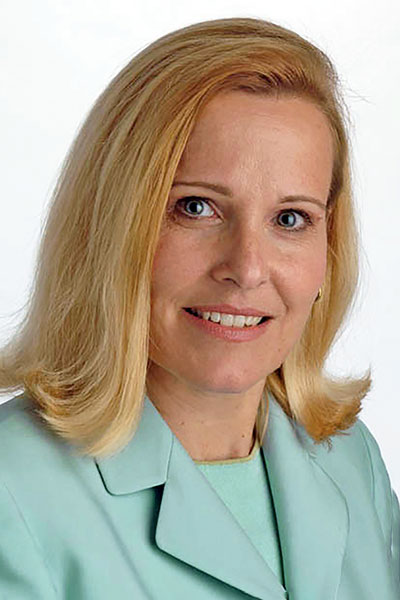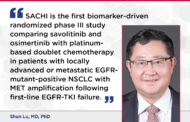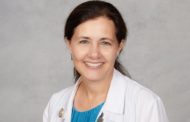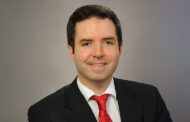IASLC CEO Karen Kelly, MD, recently spoke with ILCN about the 2024 World Conference on Lung Cancer, which begins today at the San Diego Convention Center. In the following Q&A, hear her thoughts on the importance of understanding the field’s history as well as recent initiatives aimed at continuing to move the field forward.

ILCN: Obviously, the big news at the 2024 World Conference on Lung Cancer is the IASLC’s 50th anniversary. As your team has worked on celebrating the history and accomplishments of the society during the past year, what have you been reminded of? Has looking back at the progress of the past 50 years renewed your energy for conquering thoracic cancers?
Dr. Kelly: It has been wonderful to journey back and recall the incredible number of scientific advances that have been made throughout our history. However, our history goes beyond those scientific advances. The evolution of the IASLC has really been about coming together as a worldwide community. These successes show it was necessary to come together. Lung cancer is a daunting worldwide problem that requires various disciplines working in tandem around the world.
At the IASLC, we have tried to create a framework to allow our members to collaborate more than ever. Having a worldwide perspective helps us to find creative solutions that you cannot often see when only considering your own region or country.
We have brought people together and developed what I believe is an amazing community of researchers, healthcare providers, patients, and industry partners but more than that, we are a family. It was the strength of family that helped us through the difficult years—and there were many early on—when progress was incredibly slow. When we were watching patients die and feeling helpless. That was hard. While are darkest days are behind us, we still have much work today that is propelled by our strong global bond.
ILCN: Speaking of the 50th anniversary, it will take center stage tomorrow with a special plenary session as well as the celebration tomorrow evening in the historic Gaslamp quarter. What can attendees expect during these special events? Why do you believe it is important for the community to attend and celebrate this significant milestone?
Dr. Kelly: Most of our members were not around 50 years ago, so they don’t necessarily know the history of our amazing scientific journey and the evolution of the IASLC. I think all researchers would agree that you have to understand the past to improve the future. Helping our memberships learn and understand the history of the field is what we hope to do with the special plenary session. We have worked hard to make it spectacular. It will be an interactive session, and we hope attendees gain inspiration while learning about the past 50 years. Everyone typically remembers their first WCLC, and we want people to walk away feeling that this session will also be one that is remembered forever.
Hopefully we all take that inspiration with us as we head to the celebration in the Gaslamp quarter. The celebration is about our members. I want to make that point clear. We are really celebrating and supporting our members so they can continue to make even more incredible advances to help our patients.
ILCN: Of course, the World Conference is about far more than where we’ve been. Indeed, today there are nearly 20 workshops on the schedule as well as the Opening Plenary featuring several big-name speakers. During the Opening Plenary, you’ll be moderating a discussion with three of those speakers, Drs. Douglas Lowy, Oscar Arrieta, and Robert Winn. What are you looking forward to hearing from the Opening Plenary talks and the panel discussion?
Dr. Kelly: As wonderful as it has been to have seen all the clinically relevant, paradigm-shifting advances in recent years, such advances have raised our awareness of the growing health inequity around the world. We often can’t get newer drugs and other treatments where they are needed most, which is heartbreaking. I will be asking our speakers about pragmatic solutions that can be implemented in the near future and beyond. I think everyone is aware of the problems; we need action. I also want to hear ideas about how IASLC can further foster global collaborations. How can we play a bigger role in working with global leaders to implement strategies to decrease lung cancer mortality and morbidity?
ILCN: Throughout the next several days, there are also dozens of educational sessions, symposia, and posters as well. Are there any sessions or abstracts in particular that are on your “must see” list?
Dr. Kelly: There are so many great sessions, and I always struggle getting to everything on my list, and I know that our members do too. What automatically comes to mind as “must see” are the presidential symposia. I am excited we have two this year, which gives us more time to feature some of the high-quality science being presented at WCLC 24. And fortunately, even if we can’t attend or watch every session as they happen, on-demand programming allows attendees to watch sessions anytime from anywhere.
I also make sure I make time for talking with colleagues and members. I really enjoy hearing from people. It’s fascinating. I carry a little notebook so I can highlight my conversations. So, if members see me with my little notebook, I hope they take the opportunity to come talk to me.
ILCN: At the end of WCLC 2023, the IASLC introduced its new strategic plan, which you began implementing earlier this year. How has the roll out of the plan gone so far? What key initiatives are under way?
Dr. Kelly: We are dedicated to making sure the strategic plan is implemented. As I’ve said, I’m all about action. This isn’t a plan that will sit on a shelf.
First, I’m proud we have implemented our new learning management system, Lung Cancer 360. I really want all of our members to explore it. We have a lot of information available there, and we are adding new information all the time. I also encourage members to provide feedback on how we can make it better. I feel strongly about listening to the members. I want to understand members’ needs. I want them to know that I hear them, and we are acting. As I said, I’m all about taking action.
In fact, we have heard from many members that they would like to see grant opportunities for mid-career investigators. In response, as part of our strategic plan, we launched a new $2.5 million grant opportunity with the Lung Cancer Research Foundation. The awardee will be announced soon. The grant will fund research focused on furthering the development of novel therapies, including immunotherapeutic approaches, for patients with oncogene-driven lung cancers.
This week we will be announcing a second mid-career grant funding initiative, which will include five grants—one in each of our five major regions, keeping with the global nature of our organization.
We’re also proud to be expanding our efforts in low- and middle-income countries. As a step in this direction, we’re planning our first African meeting, which will take place in Accra, Ghana, in early 2025.
Ultimately, we are proud to say we listen to our members. Now, that does require us to put out a lot of surveys, so I hope the members will have patience with us. The point of our inquiries is to determine if we are meeting our members’ needs and to make sure they know they are valued.
I’m very proud of our strategic plan. It is big and bold, but conquering thoracic malignancies requires big and bold.





